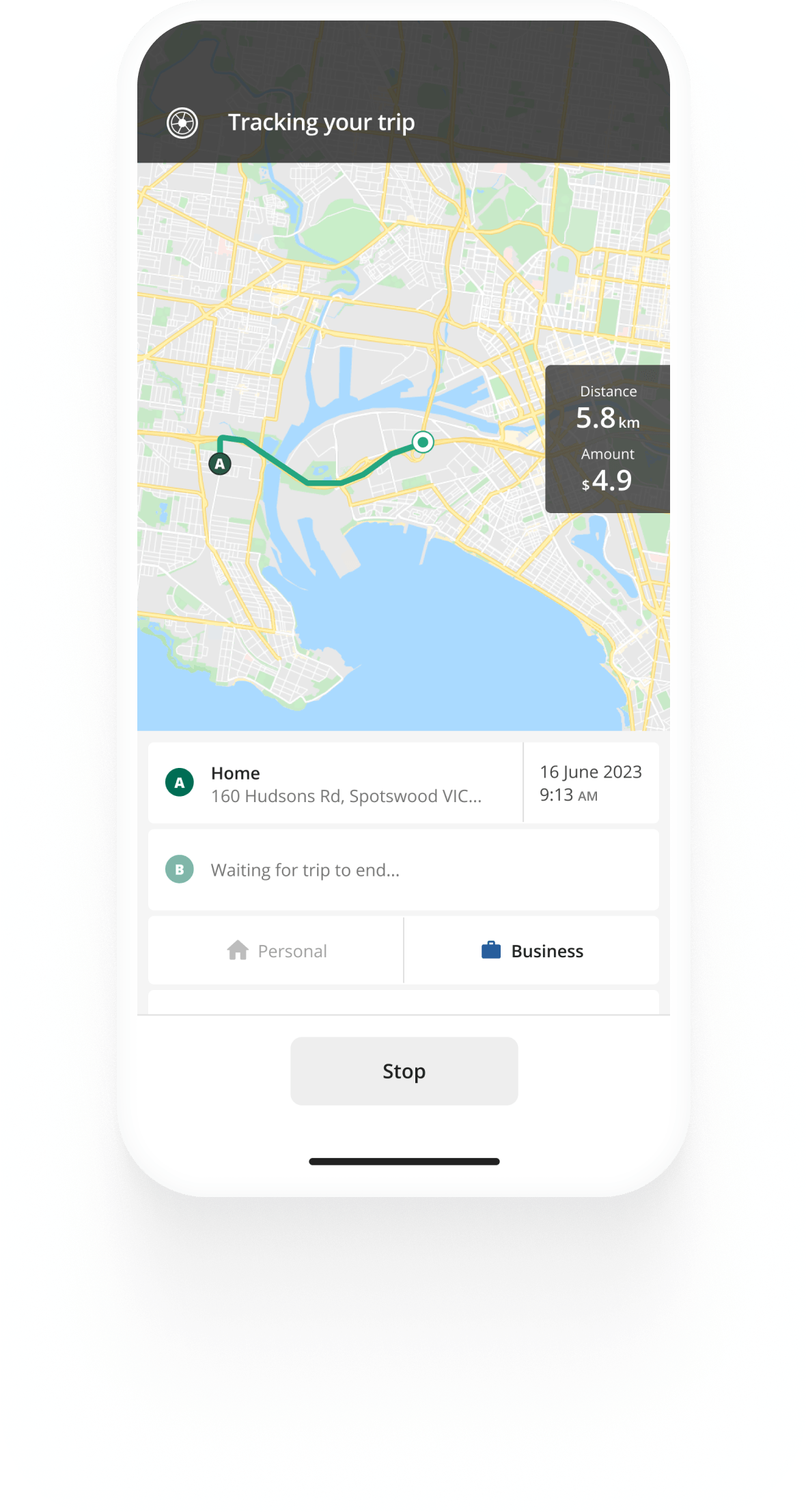Track mileage automatically
Get started.svg)
Employers' Guide to FBT-Exempt Benefits
If you provide your employees with non-monetary fringe benefits in addition to their wages, you will likely have to pay the ATO Fringe Benefits Tax (FBT).
The key term in determining whether a benefit is subject to FBT is ‘personal use.’ For example, providing employees with a company car they drive outside of work for private use would (in most cases) constitute a car FBT.
This article provides an overview of ways to reduce your FBT liability, such as exempt benefits, cash benefits, and exempt motor vehicles.
FBT-exempt benefits
Certain items provided to employees are exempt from FBT, within limits. These include:
Portable devices used primarily for work purposes, but possibly used outside of work on occasion. Small businesses can claim FBT exemption for more than one device per employee, whereas larger businesses are limited to one. Includes:
- Laptops
- Tablets
- Mobile phones
- GPS systems
Work-related tools and accessories. For all businesses, the FBT exemption is limited to one item per FBT year per employee. Includes:
- Tools of the trade
- Software
- Protective clothing
- Briefcases
Car parking. For example, an FBT exemption for car parking benefits may apply to an employee with a disability. You can read more in our FBT and car parking tax guide.
Travel to or from work using taxis or rideshares. The exemption is generally limited to a single trip only, but it may be extended in case of sickness or injury.
Retraining expenses for employees facing redundancy. An exemption applies where you provide the training to help the employee find another job, but the training is unrelated to their current job.
Emergency assistance. Includes:
- Provision of emergency supplies
- Repairs
- First Aid in case of an accident, a catastrophic event, or serious illness.


Kilometre tracking made easy
Trusted by millions of drivers
Automate your logbook Automate your logbook

Automatic mileage tracking and ATO-compliant reporting.
Get started for free Get started for freeEmployee-deductible benefits
Providing a benefit that the employee would have been able to claim as a tax deduction if they’d paid for it, the ‘Otherwise Deductible’ rule applies, and your liability reduces.
Examples include home internet costs or study fees related to their work. Note that it’s crucial to determine whether the employee could have claimed the cost as a deduction in the first place. It may also be that only a portion of the cost would have been tax-deductible for them.
Employee contributions towards the benefit
Sometimes, employees agree to contribute to the cost of the benefit provided. In this case, the benefit’s value would be reduced by the portion they contribute, and your FBT liability would be reduced. However, you must still include their contribution in your taxable income.
Cash bonuses
Cash bonuses are NOT subject to FBT.
This means you can reduce FBT by paying a worker the cash value of a benefit instead of providing the benefit itself.
Remember that the employee would then need to declare the cash as income on their tax return, so consider increasing the cash amount to cover their tax liability.
FBT exemption for minor benefits
This exemption applies where:
- The notional value of the item (i.e. its value if it was taxable) is less than $300
- The item is provided only occasionally or as a one-off, and
- It would be unreasonable to treat the item as a fringe benefit.
Gifts to an employee for a special occasion or the occasional lunch might fall into this category.
Exempt motor vehicles
While a car for private use is generally considered a taxable fringe benefit, this rule has some exceptions.
This includes instances where the car is a delivery or transport vehicle, and its private use is limited.
Our article on FBT-exempt cars provides more examples.
Also read: FBT exemption on electric cars (EVs)
Recordkeeping and reporting
FBT-exempt benefits are not reportable. You don’t need to include these on your FBT return or record them on employee income statements.
If you provide any taxable fringe benefits, you must keep accurate records and lodge an annual FBT return with the ATO. You will also need to record the value of taxable fringe benefits provided to individual workers on their income statements at the end of the financial year.
A great solution for simplified recordkeeping could be a vehicle logbook app, Driversnote for Teams. It records mileage automatically and generates reports in seconds. If you’re looking to speed up mileage logging and reporting in your company, an app might be just the thing.

Tired of logging mileage by hand?
Effortless. ATO-compliant. Liberating.
Top posts
- Work-Related Travel Expenses for Employees
- Sole Trader Tax Deductions: An Essential Guide
- Cars Exempt from FBT
Related posts
ATO Mileage Guide
Latest update: 23 June 2025 - 5 min read
Learn about the rules of reimbursing employees for their car expenses or deducting expenses as an employee or self-employed individual.
Work-Related Travel Expenses for Employees
Latest update: 16 January 2026 - 2 min read
Learn about the ATO rules on work-related travel expenses and see if they are reimbursable or deductible at tax time in Australia.
Sole Trader Tax Deductions: An Essential Guide
Latest update: 22 October 2025 - 5 min read
Maximise your income with our guide to sole trader tax deductions. Learn about deductible business expenses and how to claim them.


.svg)